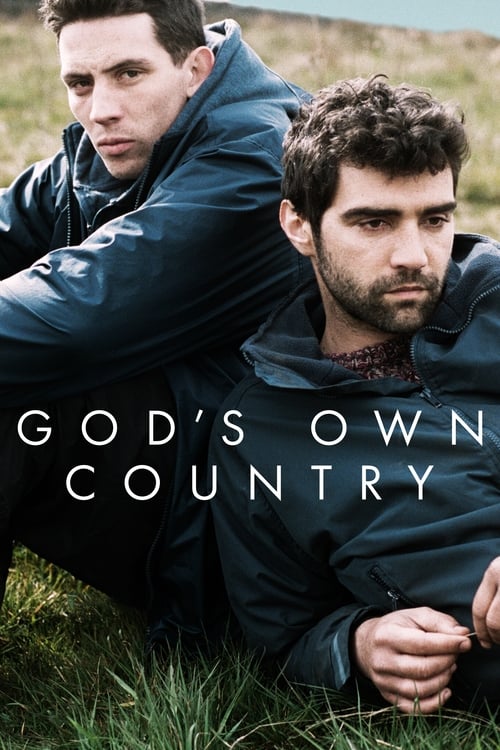
Title: God's Own Country
Year: 2017
Director: Francis Lee
Writer: Francis Lee
Cast: Josh O'Connor (Johnny Saxby),
Alec Sec?reanu (Gheorghe Ionescu),
Gemma Jones (Deidre Saxby),
Ian Hart (Martin Saxby),
Harry Lister Smith (Trainee Auctioneer),
Runtime: 105 min.
Synopsis: A young farmer in rural Yorkshire numbs his daily frustrations with binge drinking and casual sex, until the arrival of a Romanian migrant worker.
Rating: 7.771/10
A Quiet Surrender to the Soil: The Tender Brutality of *God’s Own Country*
/10
Posted on July 22, 2025
Francis Lee’s God’s Own Country (2017) is a film that burrows into the marrow of human connection, set against the rugged Yorkshire moors, where the land itself feels like a character unyielding, yet fertile with possibility. The direction, Lee’s debut, is a masterclass in restraint, allowing silences to speak louder than words. He crafts a narrative that doesn’t rush to resolve its tensions, mirroring the slow thaw of its protagonist, Johnny Saxby (Josh O’Connor). The screenplay, also penned by Lee, is sparse but precise, each line carrying the weight of unspoken histories. It avoids melodrama, letting the characters’ actions mending a fence, birthing a lamb reveal their inner shifts.
O’Connor’s performance is a revelation, his Johnny a volatile mix of repression and yearning, his eyes betraying a hunger for something beyond the bottle and the farm. Alec Sec?reanu, as Gheorghe, the Romanian migrant worker, matches him with a quiet intensity, his gentleness a counterpoint to Johnny’s rough edges. Their chemistry is raw, not romanticized, grounded in tactile moments mud-smeared hands, shared breaths in the cold that make their evolving bond feel earned. The film’s refusal to sanitize rural life or queer desire is its strength; it’s less about love conquering all than about love as labor, as deliberate as tending the land.
Cinematographer Joshua James Richards deserves praise for capturing Yorkshire’s stark beauty mossy stone walls and mist-soaked fields frame the characters without overwhelming them. The camera lingers on small gestures: a calloused hand gripping a gate, a fleeting glance. Yet, the film falters slightly in its pacing, particularly in the second act, where the rhythm occasionally drags, as if unsure how to transition from isolation to intimacy. The score, minimal and ambient, supports the mood but lacks distinction, fading into the background where it could have deepened the emotional texture.
What elevates God’s Own Country is its insistence on vulnerability as strength. It’s a film about rebuilding relationships, selfhood, even a crumbling farm without promising tidy resolutions. Lee’s vision is unflinching yet tender, a reminder that connection, like the land, requires patience and care. This is not a story of escape but of staying, of rooting oneself in the hard earth of truth.
0
0
